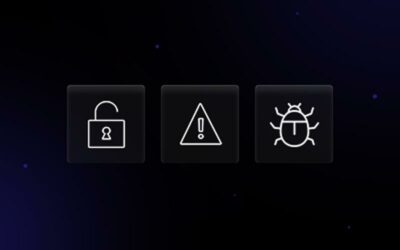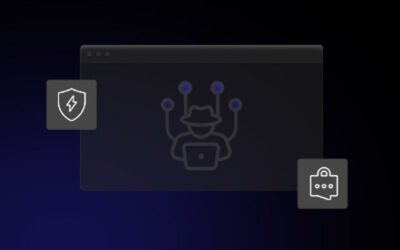Cyberattacks could be as simple as an email asking for specific information like bank details and passwords or malicious software that can harm your computers or networks. Small businesses are usually more at risk of these attacks. Knowing what they are and how to prevent them will go a long way in fighting the cyber fight.
WHAT IS A CYBERATTACK?
An attack on another computer or network to disable a system or gain access to information is identified as a cyberattack. It may come in many forms. Malware, ransomware, denial of service, man in the middle, phishing, SQL injection, and zero-day exploits are the most common attacks.
- Malware – the term used for all malicious software. This includes viruses, Trojans, and worms.
- Ransomware – another form of malware that attackers use. They would encrypt the data gathered and ask for a ransom for the decryption of the information.
- Denial of service – usually makes use of malicious requests to overwhelm a system with traffic or data to prevent it from completing any tasks. A distributed denial of service (DDoS) uses a lot of computers manned by cybercriminals to disable the system.
- Man in the middle – makes use of an unsuspecting user to intervene and get information. An example of this is mimicking the log-in screen for access to a hotel’s wifi. As the user logs in, the attacker can collect all the information the user provided.
- Phishing – an email or message that appears to be legitimate and often leads the receiver to click a link or download malware that may collect information such as bank details and passwords.
- SQL injection – happens when an attacker makes unauthorized SQL commands that may compromise the system if it is not secured enough. Many businesses rely on Structured Query Language (SQL) in their operations.
- Zero-day exploits – an opportunity cyberattackers take when a system has a flaw that is yet to be fixed and secured.
THE DANGERS OF CYBERATTACKS
Cases of cyberattacks are rapidly increasing among small- and medium-sized businesses, according to a survey conducted by the Penomen Institute in 2018. Small businesses are usually the target of these attackers as they assume that the businesses have less security to bypass. Here are the possible consequences that cyberattacks can cause in your business:
Damage/loss of data
most of these cybercriminals are after useful data that they can get from your systems or databases. Malware would disable the system causing your files to be gone or inaccessible. This puts your business information and the information of your customers at risk. This may also lead to possible lawsuits by clients for the information that was stolen or damaged.
Unwanted expenses
From recovering your devices affected by the attack, notifying customers, closing business for a few days to fix the issue, buying a completely new device, paying ransom for decrypting your information, or dealing with a lawsuit, cyberattacks are a threat to a business’ income and financial stability.
Loss of customers
Customers look for businesses that they can trust. In this age of technology where almost all transactions are made online, data privacy and security are valued. In the case of a cyberattack, customers may lose confidence in the company or business.
PREVENTING CYBERATTACKS
For small businesses to minimize the risk of cyberattacks, properly preparing and preventing these attacks from happening is your best bet.
Train your employees
Check that your employees have enough training and information regarding possible threats and security options for your company. It is also recommended for each employee to have unique log-in credentials for fewer security risks.
Equipping your employees with knowledge is already a big step forward. Through this, they would be able to distinguish phishing emails, make strong passwords, and be mindful of every transaction they make online.
Keep your security up to date
You should frequently change your passwords and provide strong password qualifications. In doing so, you will be able to level up your company’s security features. Aside from this, you should ensure that all of the company computers that you use have updated antivirus software that helps keep the cyber attackers from any opportunities to attack your systems.
Your antivirus software is recommended to have a certificate to be sure of its legitimacy and quality. It is also important to set up a firewall that controls all network activity in your devices.
Encrypt and maintain a backup of your data
In the unfortunate event that your information is compromised, having a backup ensures that it is not damaged or lost. It is also good to encrypt your data to make it safe and challenging for attackers to access.
Rely on IT experts
Some businesses use managed IT services as they have been proven beneficial for cybersecurity. Managed IT service providers are third-party companies that provide expert help in the delegated task of securing defense against cyberattacks. They can focus on keeping your systems safe and secure. Their extensive experience from managing different companies assures you of what they can do for your business.
Acquiring adequate information about the different kinds of cyberattacks and how they can affect your business is an ideal way to keep these malicious attempts from penetrating your systems. Always be on the lookout and use preventive measures to avoid any of these attacks. After all, prevention is better than cure, especially in cybersecurity.




